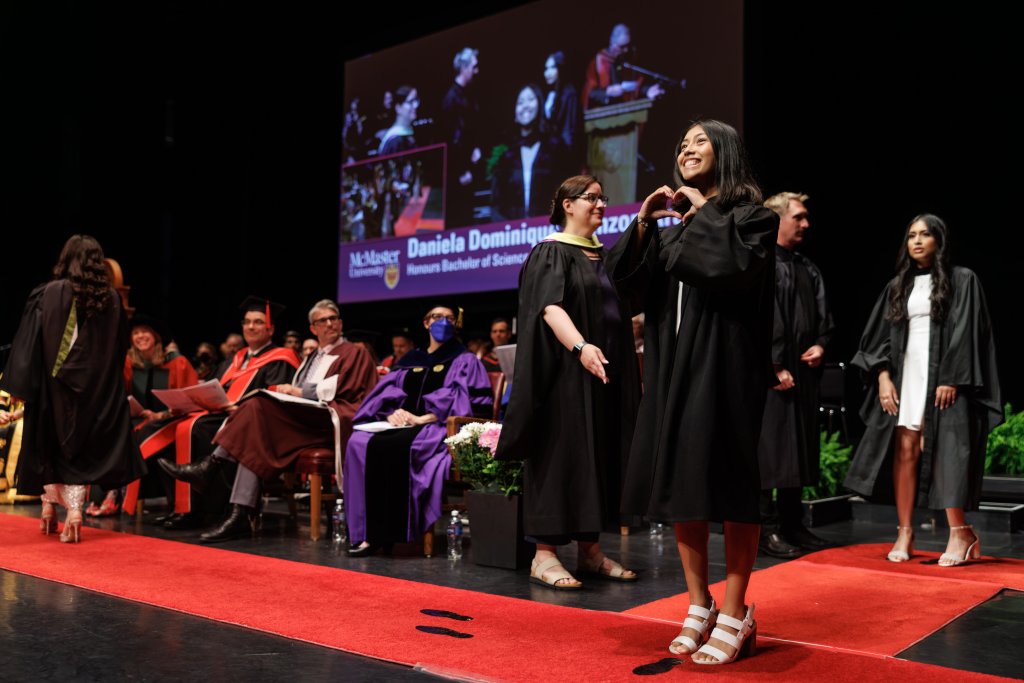 |
Kay McCallum
Kay McCallum believes in creating lasting initiatives that address community needs. During their time at McMaster, Kay advocated for EDI and student wellbeing at the departmental, faculty, and university level. In 2023, they created Meet the Groups, an event addressing inequities in undergraduate student researcher hiring, and inspired institutions across Canada to create their own events.As President of the Science Graduate Student Association (2024–25), Kay advised on the Susan Cunningham Leadership Academy’s development to ensure its efficacy and applicability for graduate students. Kay is an award-winning science communicator and a founding member and administrator of SciCommBites, an online publication that digests cutting-edge science communication research into accessible, bite-sized articles. Kay completed their PhD in Chemistry with Dr. Sarah Styler, applying atmospheric chemistry techniques to art conservation science questions. Post-graduation, Kay will be starting a business with Dr. Styler and is excited to see what the future holds. |
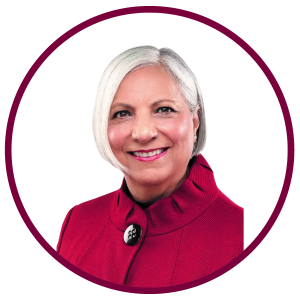 |
Rumina Velshi
Rumina Velshi is a Professional Engineer who earned degrees in civil and chemical engineering as well as an MBA at the University of Toronto. She began her career at Ontario Power Generation and Ontario Hydro where she worked for more than three decades, ultimately serving in senior executive positions related to nuclear energy. Ms. Velshi then became chair of the Employment Insurance Board of Referees, but returned to the nuclear sector as a member of the Canadian Nuclear Safety Commission (CNSC). In 2017, she joined the Ontario Energy Board and a year later, became president and chief executive officer of the Canadian Nuclear Safety Commission. In her half decade as CEO at CNSC, she launched the Women in STEM initiative, helped establish – as founding co-chair – the International Gender Champions Impact Group on Gender Equality in Nuclear Regulatory Agencies, and chaired both the Commission of Safety Standards for the International Atomic Energy Agency and the International Nuclear Regulators Association. Since leaving CNSC, Ms. Velshi has been a board member for Hydro Ottawa and SaskPower, a member of the International Nuclear Safety Advisory Group, and chair of the OECD Nuclear Energy Agency High-Level Group of Stakeholder Engagement and Trust. She is an expert advisor to Japan’s Nuclear Regulation Authority and to the Canadian law firm Torys LLP. She also co-founded ZettaJoule, a nuclear energy startup based in Japan. Ms. Velshi co-chaired Canada’s first Nuclear Energy Agency International Mentoring Workshop for Indigenous young women and was a founding co-chair of Canada’s Driving the Advancement of Women in Nuclear. She is a board member with the Canadian Institute of Women in Engineering and Sciences and has also played key volunteer leadership roles with the Aga Khan Foundation Canada, the Toronto Board of Health, Scientists in School, and Women in Nuclear Canada. A non-resident senior fellow at the Atlantic Council’s Nuclear Energy Policy Initiative and a distinguished fellow at the Munk School of Global Affairs and Public Policy, Ms. Velshi was the inaugural recipient of the International Framework for Nuclear Energy Cooperation’s “Icon of Nuclear” award. |
 |
Claude Cournoyer-Cloutier
Claude Cournoyer-Cloutier is graduating with a PhD in Astrophysics. She previously received her MSc in Astrophysics from McMaster in 2021. Claude is committed to making physics and astronomy more inclusive and is a firm advocate for incorporating EDI practices in teaching and outreach. In her role as head teaching assistant for two first-year physics courses, she implemented several new marking practices to make grading more equitable and transparent. During her PhD, she gave more than 100 shows for McMaster’s on-campus and portable planetariums. She was the graduate student representative on department meetings for several years, and on a faculty hiring committee in 2021-2022. In her research, Claude uses numerical simulations to study the formation of massive, dense clusters of stars. She has played a central role in an international collaboration since day one of graduate school. In the last year of her PhD, she also started co-supervising student projects and is keen to continue doing so as her career progresses. Claude recently started a postdoctoral fellowship at the Max Planck Institute for Astrophysics in Munich, where she is excited to continue her research over the next few years. |
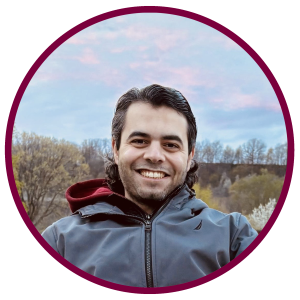 |
Ahmed Moussa
Ahmed Moussa is an award-winning researcher passionate about harnessing artificial intelligence to build resilient, intelligent, and equitable infrastructure systems. Recognized as an NSERC-designated Vanier Scholar and Valedictorian of the German University in Cairo, he embodies a new generation of scholars who unite innovation, purpose, and societal impact. Guided by a belief that technology should serve humanity, Ahmed’s work explores how AI can enhance resilience and sustainability across the built environment. His vision centers on creating intelligent systems that empower communities and promote lasting social impact. A natural leader, Ahmed has advanced multi-sector collaborations that connect academia, industry, and government. He is deeply committed to mentorship, inspiring emerging engineers and scientists to think creatively and act ethically in an evolving digital era. Driven by excellence, Ahmed believes that meaningful innovation begins with empathy—and that the intelligent systems we design should help build a smarter, fairer, and more compassionate world. |
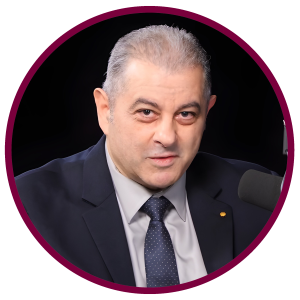 |
Dr. Cherif Matta
Dr. Chérif F. Matta, who earned his PhD in Chemistry from McMaster University in 2002, is an internationally recognized theoretical and computational chemist whose work bridges the fields of chemistry, physics, biology, and astronomy. Following postdoctoral research with Nobel Laureate John C. Polanyi at the University of Toronto and with Russell J. Boyd as an Izaak Walton Killam Fellow at Dalhousie University, Dr. Matta joined Mount Saint Vincent University in 2006 where he is currently Professor of Chemistry and Physics. In 2009, he earned the Habilitation to Direct Research (HDR) from Université de Lorraine in France. Dr. Matta holds honorary-adjunct appointments at Dalhousie, Laval, and Saint Mary’s Universities, and has frequent visiting professorships at dozens of universities and research institutes around the world. Dr. Matta’s research has helped reshape several frontiers of physical science. While at McMaster, he discovered the “hydrogen-hydrogen” bonding interaction. He later introduced electron localization-delocalization matrices (LDMs) as quantum descriptors in molecular design, and elucidated the electrostatic role of ATP synthase enzyme in mitochondrial bioenergetics. His recent work on diffuse interstellar bands is a step in resolving this century-old mystery in astrochemistry. His work is disseminated in more than 200 publications including four books as well as invited lectures in more than 40 countries. A leader in shaping science policy, Dr. Matta has chaired the Interdisciplinary Adjudication Committee of the Canada Research Chairs Program, served on the Canada Excellence Research Chairs Selection Board, and as director of accreditation for the Canadian Society for Chemistry. He is a current member of the Canadian National Committee for Crystallography and a member of the Commission for Quantum Crystallography of the International Union of Crystallography. Dr. Matta is an elected fellow of the American Association for the Advancement of Science, the African Academy of Sciences, the Chemical Institute of Canada, the Royal Society of Chemistry, the Institute of Physics, the Royal Society of Biology, and the Royal Society of Arts. His honours include the John C. Polanyi Prize in Chemistry, the Molecular Graphics and Simulation Society Silver Jubilee Prize (UK), the Lady Davis Fellowship, the NSERC/Acfas Science Exposed Prize, the Mount Saint Vincent University Research Excellence Award, the Science Atlantic Speaker of the Year Award, and the Polish Minister of Science Distinguished Visiting Professorship. A gifted communicator, Dr. Matta promotes science in his native Arabic as well as in English, French, and Spanish, and is the creator of the bilingual outreach series A Conversation with a Scientist on YouTube. He has served as chair of the Board of Trustees of Dalhousie University’s Legal Aid Services and testified as an expert witness before the Canadian House of Commons Standing Committee on Science and Research. |
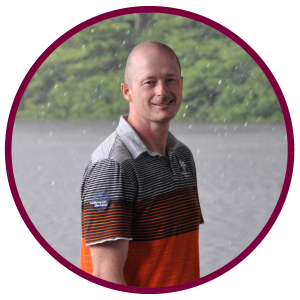 |
Grant McClelland
Dr. Grant McClelland earned his PhD in Zoology from the University of British Columbia (UBC) and joined the Department of Biology at McMaster University in 2003, following postdoctoral fellowships at the University of California, Berkeley, and Queen’s University. He has served as President of the Canadian Society of Zoologists and was honoured to deliver the Peter Hochachka Memorial Lecture at UBC in 2023. Dr. McClelland’s research explores how energy demand and environmental stress influence the ways animals power essential physiological functions such as heat production and exercise. His current work focuses on how animals living at high altitudes adapt to the challenges of low oxygen and cold temperatures in alpine environments. His research has taken him to the Rocky Mountains, the high Andes, and the Amazon. Throughout his career, Dr. McClelland has mentored numerous award-winning undergraduate and graduate students. Nine of his trainees have gone on to faculty positions in Canada, the United States, and Japan, while others have built successful careers in biotechnology, environmental consulting, university teaching, and research administration. |
